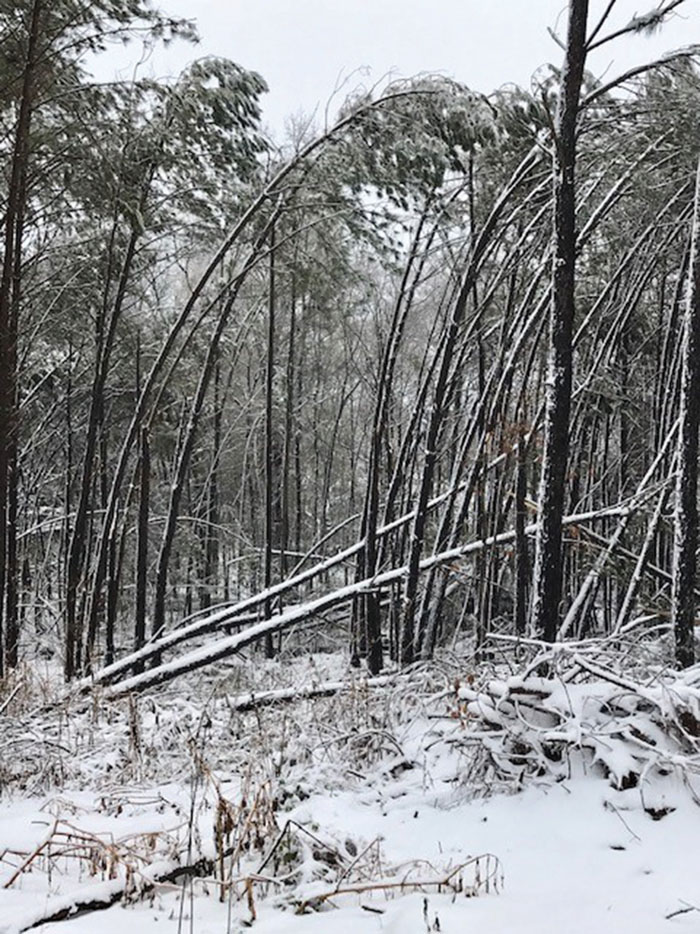Protect your plants from winter winds
Published 12:00 am Friday, December 28, 2018

- Submitted photo The wet snow, which was followoed by some ice, knocked doown pine trees on the property of Amy-Lynn Albertson, the Rowan County Extension director.
By Amy-Lynn Albertson
Rowan County Extension Director
The snow and ice we had a couple of weeks ago caused a lot of damage at our house. The weight of the ice and snow caused our pine trees to bend and snap.
You cannot keep your landscape plants warm all winter, but you can protect them from damaging wind, heavy snow and ice, and the alternate freezing and thawing of the soil beneath the plants, and heat from the sun on very cold days.
Evergreens continue to take up moisture in the winter. When the ground is frozen or during a dry time, the moisture is not available. The plants will continue to draw moisture from living cells. If this happens too much, the leaves will brown out and die. High winds and warm sun on cold days will increase the amount of moisture intake. You can protect these susceptible plants by planting them in a sheltered area and providing additional water during dry periods or before an expected hard freeze.
Another factor to be concerned about is injury from ice and snow falling from the roof on frozen branches. On our farm, the weight of the ice combined with heavy, wet snowfall caused many of our pine trees to break.
If you have plants you are able to protect near your home, you can wrap wide tape or cloth around an evergreen to prevent broken branches. This technique is helpful for boxwoods and arborvitaes. If branches are bent and broken over by heavy ice or snow, wait a few days before pruning or cleaning up. Branches will often recover without your help.
Here are some other steps to protect your plants from cold damage:
- Only plant plants that are hardy to our zone (Rowan County is zone 7).
- Try to plant tender plants in the highest part of the landscape. Cold air settles in lower lying areas.
- Protect plants from cold winds with a fence or an evergreen hedge of tall trees.
- Shade plants from direct winter sun, especially early morning sun. The south side of the house without shade is the worst place for tender plants. Plants that freeze slowly and thaw slowly will have the least amount of damage.
- Stop fertilizing plants in late summer, and let them harden off for the winter.
For more information about winter protection for landscape plants or other horticultural topics contact the Rowan County Extension Center at 704-216-8970.



